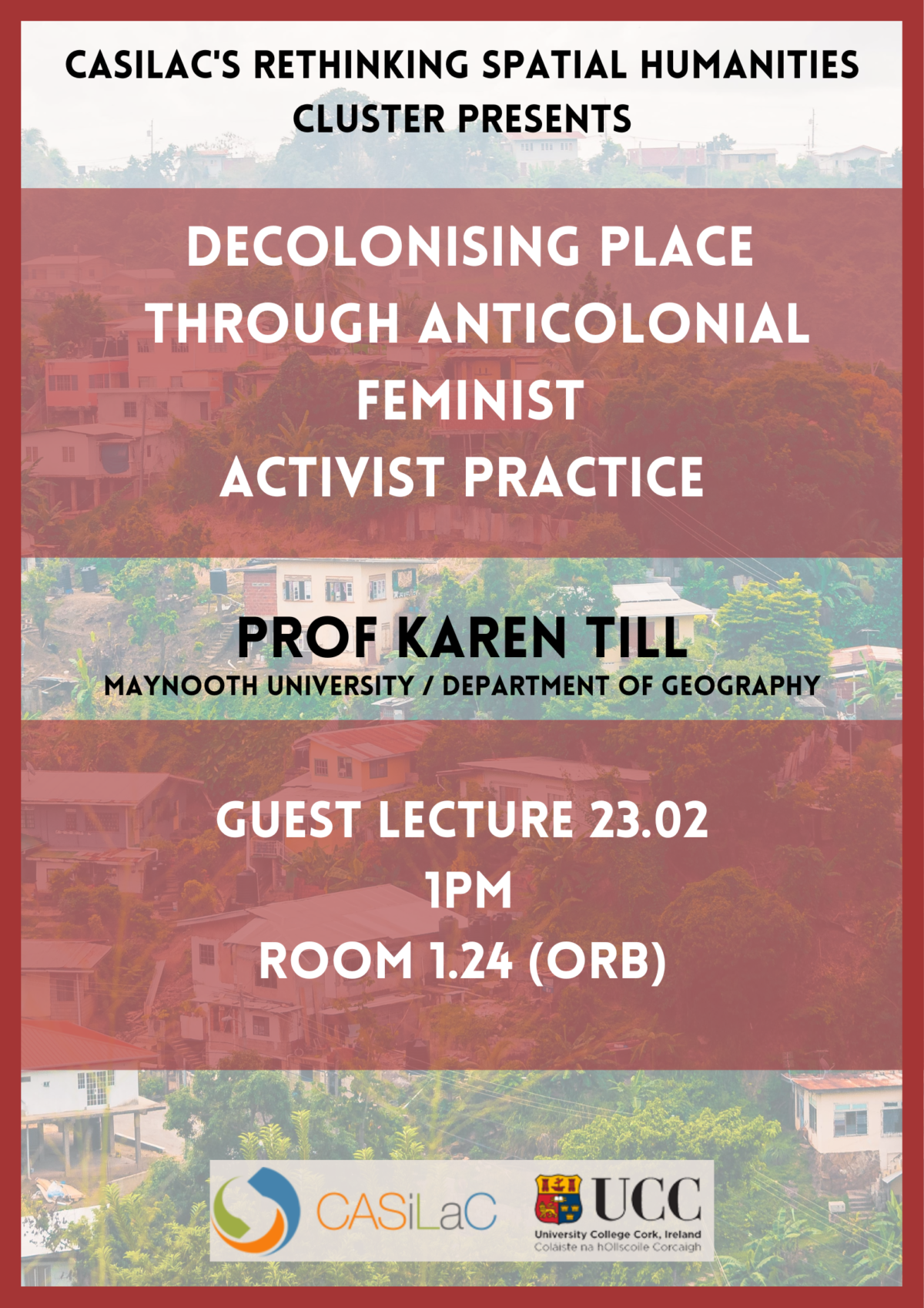Prof Karen E. Till
Maynooth University – Department of Geography
23 February 2023
1pm
Room 1.24 (ORB)
This talk advocates a geographical approach to decolonising the concept of place, and hence practices of placemaking, as part of feminist activist collaborative approaches to contribute to creating more just and healthy worlds. A starting premise is that who are affiliated with HEAs are privileged and have a responsibility for decolonising the concept of place from its Western European modernist tradition, which is grounded in the historical legacies of colonialism, Cartesian Enlightenment, and capitalism. When place is treated as bounded property, this form of coloniality continues to harm places, peoples, more than human lives, and our shared home, the earth. Places are not merely the backdrops to historical events but are central to people’s sense of self, belonging, health and dignity.
Learning from anti-colonial, Indigenous, decolonial feminist, and geographical theory and practice, we can instead think of place as meaningful small worlds created by and cared for by those who inhabit place. Decolonising the Western concept of place extends directly to responsible and respectful practice. Our challenge is to acknowledge and respect local forms of place-based knowledge, and when possible share and exchange local to local knowledges, so that we can learn emplaced ways of living and dying better together at home and on our earth. If decolonisation as a process is to be realised, we must build relations from where we are, starting with the hard work at home, and then move to building new relations with others in solidarity. A first step is acknowledging past and ongoing harms resulting from colonialism and capitalism in the practitioner’s own community/ies. Practitioners then need to listen to, learn from, stand with, and become allies with communities. From this grounded position, practitioners must acknowledge their own privilege, and learn to listen and respect the local knowledges of activists, community, leaders and artists who have inherited the wounds of past violence in particular places. This begins the difficult work of memory which is needed to advance healthier forms of place and world making with others.
The talk ends with examples from the authors’ research, activist, and creative practice that seeks to advance an anti-colonial place-based ethics of care in Dublin.
Karen E. Till, MRIA, is a feminist researcher, curator, creative writer and activist. Working with activists and artists, her research facilitates pedagogical and creative spaces that invite diverse publics to advance practices of memory-work and an ethics of care to repair places in cities wounded by state-perpetrated violence. She is Professor of Cultural Geography and chair of Geography Athena Swan Gender Equity and Diversity Self Assessment Team at Maynooth University at Maynooth University. She convenes the Space&Place (S&P) Research Collaborative of practitioners, artists, activists and scholars in Ireland, and co-convenes the international Feminist Counter-Topographies reading group. Karen is author of The New Berlin: Memory, Politics, Place, editor of the arts books Mapping Spectral Traces and the award-winning Earth Writings: Bogs, Forests, Fields, and Gardens. Her most recent project is a collaboration with Pavee Point, Coolock Travellers, and Maynooth Geography, the Traveller Community Mapping Coolock Story Map: Storied Places of Belonging and Unbelonging. To join the S&P listserv, email: karen.till@mu.ie.

